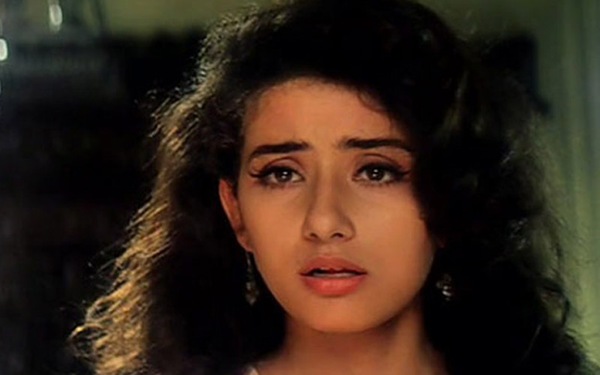Why Annie From Khamoshi – The Musical Is The Perfect Sanjay Leela Bhansali Heroine

- Devi S
Film Companion
Last Updated: 04.14 PM, Mar 02, 2022
“Papa, can you hear me… But what is life without an impossible dream!” Thus begins Khamoshi. Set in Goa, Bhansali treats us to the richness of silence through the life of a speech-and-hearing-impaired couple, Joseph and Flavy (Nana Patekar and Seema Biswas). The couple are blessed with a beautiful daughter, Annie (Manisha Koirala) and a son, Sam both of whom can speak and hear.
For me, Annie will always be the crown jewel because in a world where parents are known to raise children, we see her beautifully nurture a family, even as a child. She deeply appreciates her family, beautifully connecting with their emotions and thoughts, taking care of them keenly. Ensuring her parents’ mental and emotional needs are taken care of and being their support system all throughout; she extends a rare and dynamic love – one that travels beyond any form of communication.
Mariamma (Helen), her grandmother, introduces Annie to the melodious sights and sounds around her. The tunes soon turn famished and the musical notes fade away from her life with Mariamma’s death. But, the heart of a Bhansali film lies in its music. Khamoshi is filled with beautiful compositions like ‘Aaj Main Upar’ and my favourite, the melodious ‘Baahon Ke Darmiyan’. The songs, much like the film, finds its extravagance not in any visual grandeur but in its spirited and soulful tunes.
Annie and her family are written as highly sensitive, complex personas filled with conflicts. But their love for one another, their compassion and goodness shines through these conflicts and vulnerabilities. Annie becomes the perfect example for the same as we find her caught between her love for Raj (Salman Khan) and her responsibility towards her parents, whose happiness she honours more than her own.
Manisha Koirala makes Annie endearing with such innocence, like a soft glow that drizzles all over her. Her truthful performance ensures Annie stays treasured with us. But, what makes Annie equally interesting is how she displays a maturity beyond her years even with a child-like naivety at her core. There is a simplicity to her, as she finds happiness in the smallest of things. Mirroring her parents; she is an incredibly kind, courageous human being full of love and tenderness.
Joseph and Flavys’ silence makes the loudest noise in Khamoshi, captivating us to listen closely. Communicating every possible emotion through nuanced gestures and expressive silences, Nana Patekar gives one of his career best performances. After tragically losing their son, the couple find solace and comfort in Annie. They have a strong fear of losing her too; perhaps aided by the lingering separation from an unfamiliar, often indifferent world. The family live a fairly isolated life with very limited interactions. Particularly Flavy, who finds integrating with a bewildering outside world, a difficult proposition. There is a heart-wrenching scene where Flavy breaks down, as they try and open their home and hearts; welcoming Raj and his family for the first time.
Annie – this demure, shy, sweet and soft-featured young lady with an aura of purity – as is often done, is not reduced to a good looking prop or a mere love interest. Surrounded by silence that has much to say, the dedicated daughter turns into an impactful voice – one filled with struggles, sadness, calmness, beauty and joy – for her parents. In fact, she subverts many a cliché, as Bhansali makes us appreciate this surreal beauty through the intricate patterns of sensitivity, dignity and courage he weaves into her. She bravely braces herself when faced with the loss of her little brother. Just as she protects her parents, she works towards and secretly takes care of her own dreams, pursuing her love for music even more when she meets Raj. She has a deep understanding of things and stands dignified as a talented, empathetic and responsible human being.
Living through the lull that surrounds her and the hardships that denied her a carefree childhood, she grows up to eventually find a voice of her own, especially as a mother. Even as she respects her parents, is committed to their well-being and is connected to her roots; she finally makes her own decisions, reconstructing her life. Bhansali’s writing helps us relate to her – her love, her life, the concerns and pressures she face – through tiny moments and these exquisite little conversations and even a soliloquy. She brings in optimism, faith, spirit and stability even in the face of a turmoil. There is a strength to her harmony, her endurance; making her tough in her own right.
Therein lies the beauty of a Sanjay Leela Bhansali heroine. She is flawed, human, relatable and wonderfully multidimensional; making her difficult to be labelled. And, the firsts are always special, filled with a beauty it lends to a thousand nexts. In my view, Annie will always be the ‘perfect Bhansali muse’; the simple but incredible soul who inspired the many complex, authentic and iconic characters he went on to create in his inspiring career as a filmmaker.
The post Why Annie From Khamoshi – The Musical Is The Perfect Sanjay Leela Bhansali Heroine appeared first on Film Companion.

 Premium
Premium